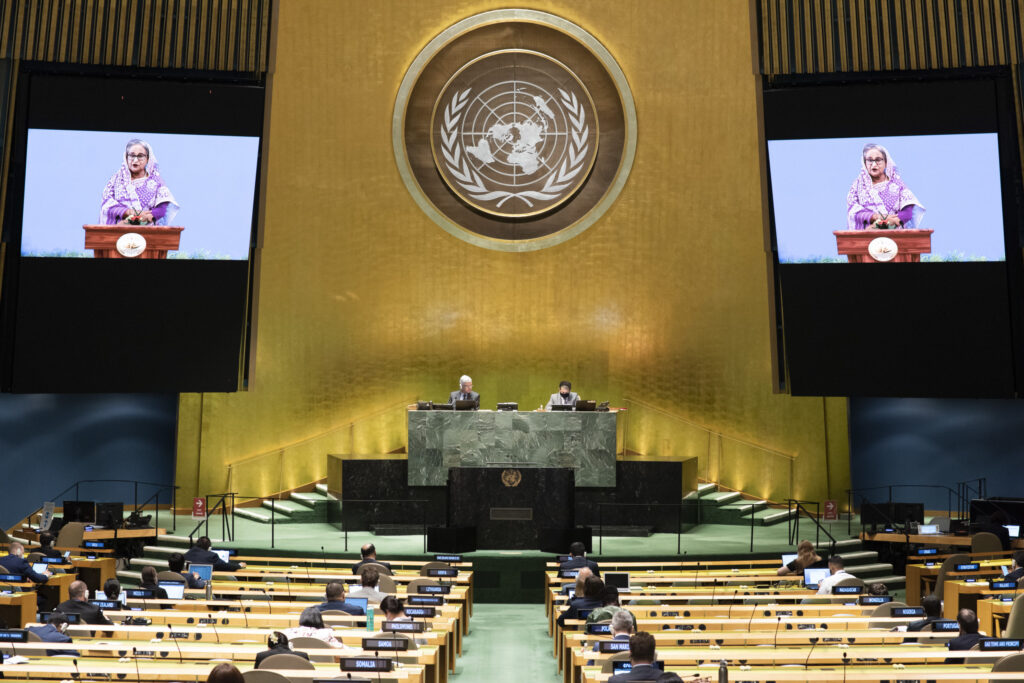
As the Cold War ended, the three warring factions, including the Khmer Rouge, signed a peace agreement with the Cambodian government. Under that accord, a United Nations interim administration staged elections in the country, with 89.56 percent participation.
Following this, East Timor held a UN-sponsored vote to split from Indonesia.
That too happened in the context of another war. A few other countries, including Namibia, once held elections under the direct supervision of the United Nations.
But the role of the UN has changed a lot over the past decade. The organization’s politics have undergone several modifications.
Is there an example of the United Nations intervening in a country’s elections as a result of internal political party disagreements?
The debate began after 14 members of the US Congress sent a letter to the United States Permanent Representative to propose that Bangladesh’s upcoming parliamentary elections be held under UN supervision.
Members of the US Congress wrote the letter at a time when the government and opposition in Bangladesh are at odds over the country’s approaching national elections.
But what exactly does it mean to hold an election under the auspices of the United Nations? Which countries in the globe have been chosen in this manner? How does organize such elections?
On the first of February last year, prepared a policy on what the role of can be in the elections of any country and how it will be.
The document, titled Electoral Assistants: Supervision, Observation, Panel, and Certification, provides detailed guidance on UN involvement in elections.
According to the electoral assistance document, one can supervise the election of a country only if that country requests assistance or if a resolution is passed either in the Security Council or the General Assembly.
There are several ways in which one can assist in a country’s elections. Sometimes these methods can work together, and sometimes they can work separately. These methods include:
Organization of elections under the supervision of the United Nations
Sending election observers
Advise and monitor expert committee
To recognize or not to recognize the election
Apart from this, the United Nations also provides technical assistance, assistance in creating an electoral environment, and assistance in the work of international observers.
To achieve these goals, peacekeeping forces may be deployed, and peacekeeping and special political missions may also be conducted. But cannot do these things at will, so a mandate from the Security Council or the General Assembly will be required. Along with it, that country’s backing is required.
country, so the people of that country must have the support of the United Nations to carry out such duties.”
According to the UN website, although the UN had essential tasks such as election monitoring in the past, it is now seldom carried out. Rather, special support is given to short and medium-term capacity building of national institutions responsible for organizing elections.
How the United Nations has played a role in the elections in various countries
When the primary components of a country’s elections will be organized under UN supervision, the Electoral Assistance: Supervision, Observation, Panel, and Certification Policy specifies.
Such activities of the United Nations began in the 1950s and 1960s when one country after another began to organize referendums for independence to break free from colonial rule.
The United Nations basically aimed to ensure that everyone could freely express their opinions by voting.
The election was monitored at the time by a United Nations supervising commissioner or a smaller panel or commission. Essentially, that country’s government conducts the election, but this committee observes, advises, and reviews. Each step of the election requires the permission of the UN Commission. However, the United Nations is occasionally involved in similar efforts. Namibia conducted the last such election in 1989. Furthermore, the United Nations organized East Timor’s legislative elections in 2001 and its presidential elections in 2002.
Is there an opportunity for the United Nations to play a role in Bangladesh’s elections?
International politics or diplomacy experts say that currently, the United Nations does not directly intervene in the internal political disputes of the countries of the world. Sometimes the organization plays the role of intermediary. But even if they are not successful there, they have nothing to do.
Former foreign secretary and diplomatic analyst Tauhid Hossain told BBC Bangla, “There were some different situations in the countries where the United Nations played a role in the elections. Mostly in the context of civil war, the UN has moved in when the warring parties have come to an agreement or one side has been defeated. But Bangladesh does not have that situation. In that case, I do not see that the United Nations has anything to do with the political arena of Bangladesh.